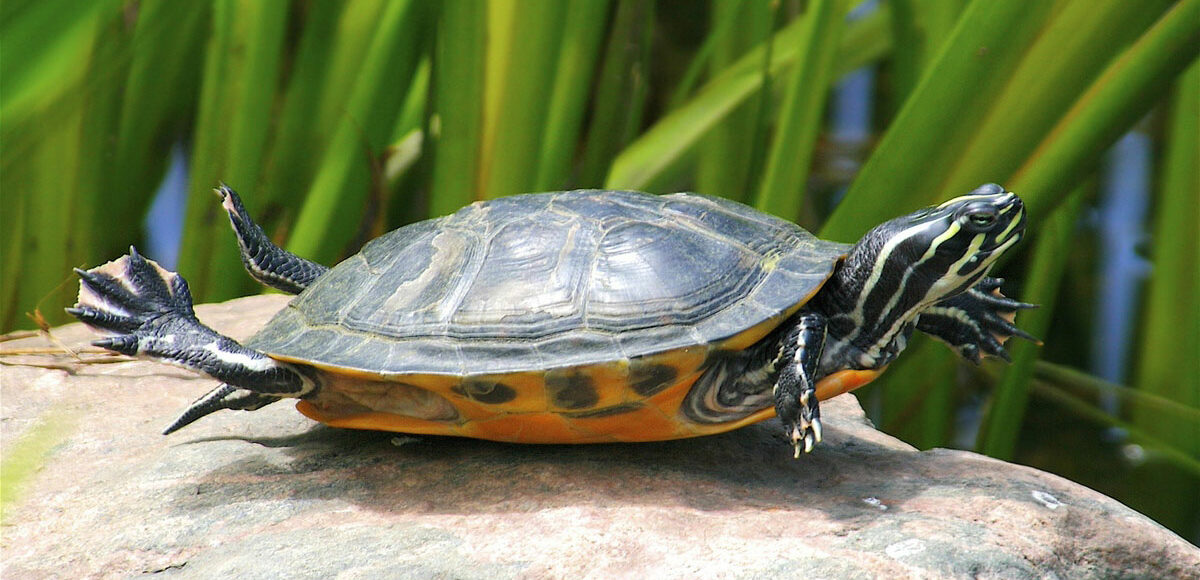Wisconsin boasts 66 state parks and 84 wildlife areas, making it a must-visit for wildlife enthusiasts. Most of these places are offer a variety of recreational activities, but only a select few are home to rarely-seen animals.
In no particular order, I’ve compiled the most scenic and memorable wildlife areas in the state.
This list is based on the reviews and experiences of fellow wildlife lovers. Some popular recreational locations might be littered with visitors, but there are also hidden gems for those who prefer perfect serenity.
-
Sandhill Wildlife Area
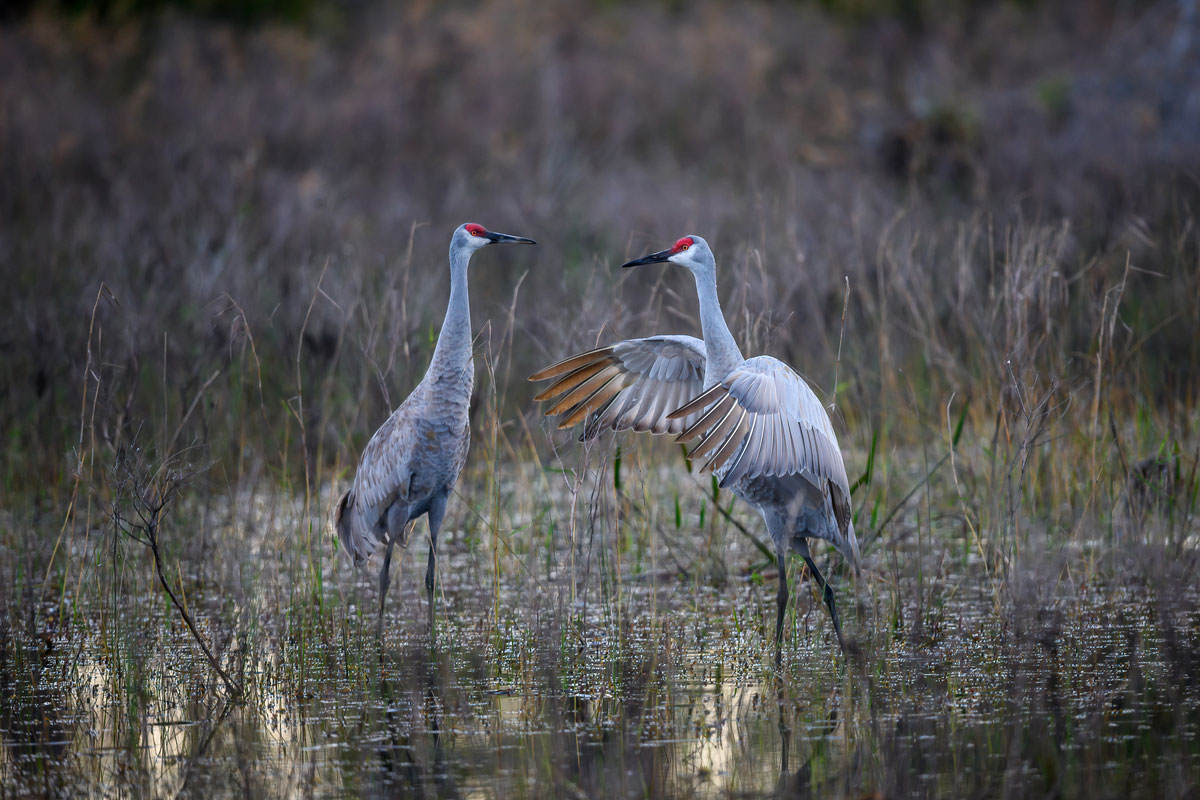
Photo: Diana Robinson
The Sandhill Wildlife Area has white-tailed deer, bald eagles, sandhill cranes, beavers, and a small herd of bison. The area is pretty serene, embraced by jack pine forests, large marshes, and sandy acres of oak and aspen.
The bison herd is one of the main attractions. There are about 15 bison, all located in a 260-acre enclosure along the Trumpeter Trail. This trail is a seasonal route and is only accessible from May through October. It’s closed during the winter.
For a good look at the bison, you’d have to climb the Bison Barrens Tower, which overlooks the fenced bison range. Other observation towers on the trail include Gallagher Marsh and the North Bluff, which overlook the countryside and nearby buffs.
The area is open to hiking, hunting, biking, and cross-country skiing during the winter.
-
Horicon Marsh Wildlife Area
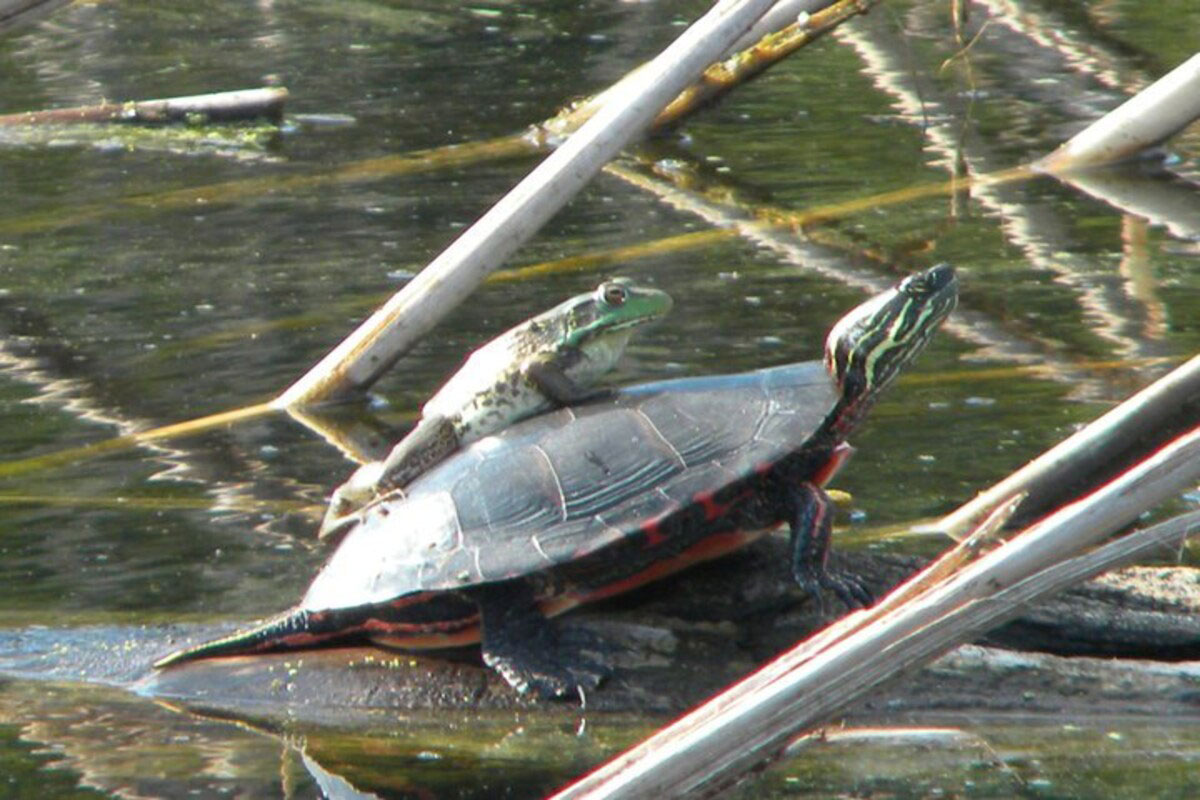
Photo: U.S. Fish and Wildlife Service
The Horicon Marsh is the United States’ largest freshwater cattail marsh. This vast wetland is a paradise for bird watchers, as it is usually flooded by various bird species at specific times of the year.
In spring alone, it is possible to see at least 100 species of birds in the marsh. In total, up to 300 bird species have been sighted. Popular bird sightings during spring include red-winged blackbirds, sandhill cranes, great blue herons, giant Canada geese, and pretty rare species such as little blue herons and white pelicans.
Winter attracts bald eagles, snowy owls, northern harriers, and tundra swans. In summer, the marsh is populated by shorebirds, sandpipers, flycatchers, and summering ducks.
Wildlife photography is allowed, and there are bird observation blinds for this purpose.
-
Buena Vista Wildlife Area
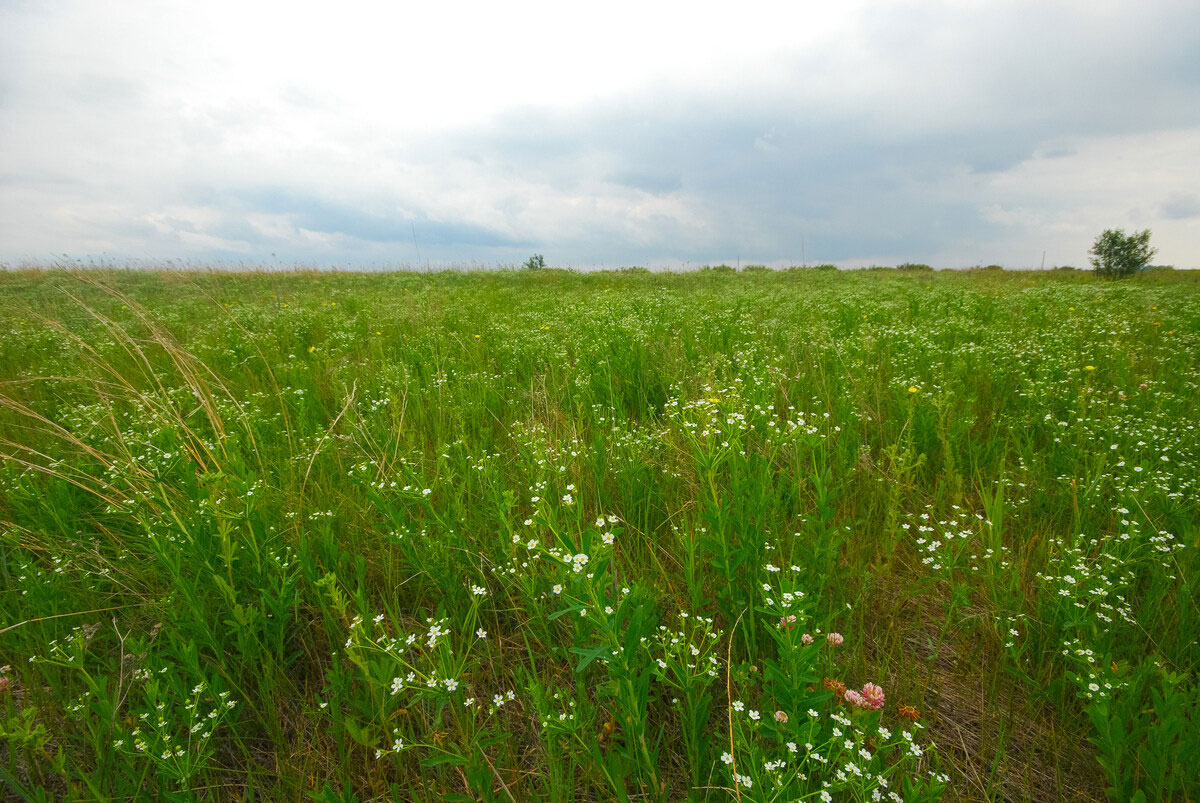
Photo: Joshua Mayer
Located in southwestern Portage County, Buena Vista has Wisconsin’s largest population of greater prairie chickens. The site is predominantly open grassland and thus contains several rare grassland bird species.
You’ll find short-haired owls, sandpipers, woodcocks, and mourning doves.
A hot spot for bird watchers, the area also allows hiking and cross-country skiing.
-
Turtle-Flambeau Scenic Waters Area
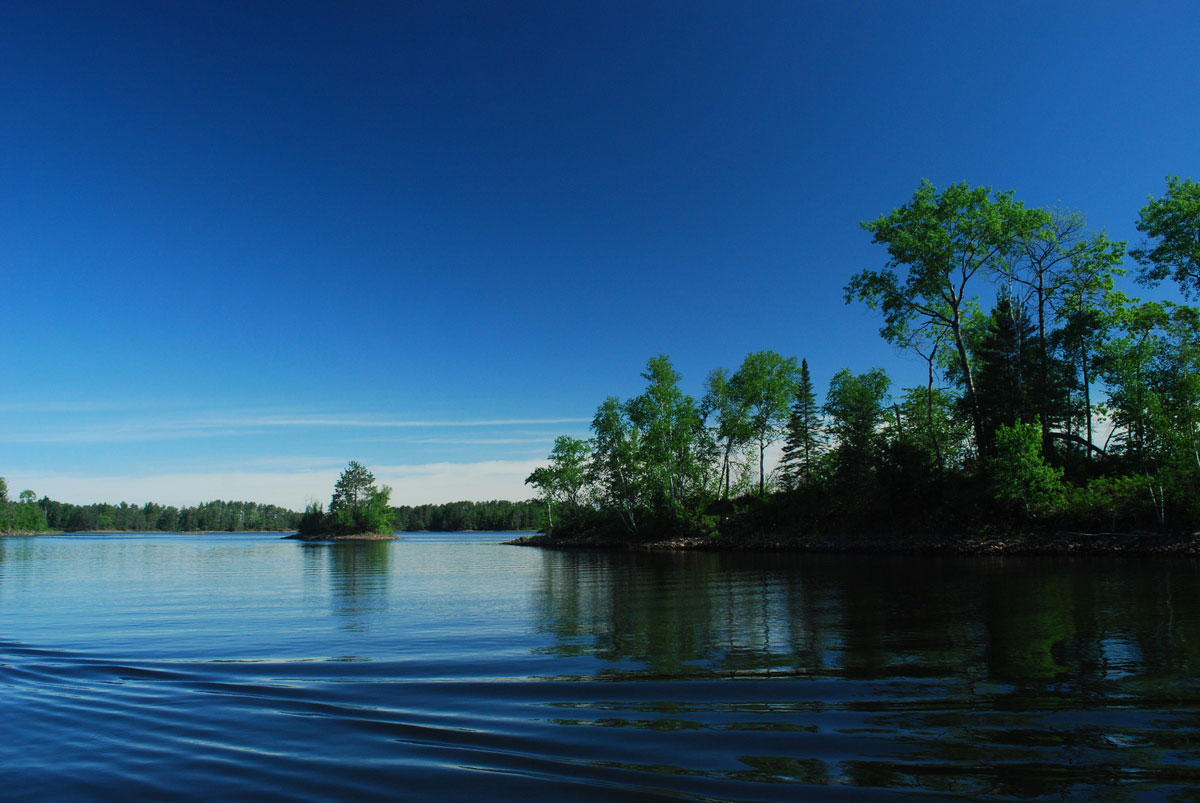
Photo: Joshua Mayer
The Turtle-Flambeau Scenic Waters Area is a massive combo of wetlands, forest islands, and water bodies. These habitats are populated by over 150 bird species, including bald eagles, which are quite popular in the area.
On a visit, you might be lucky enough to see painted turtles, beavers, black bears, timber wolves, and even moose.
The flowage has a prime spot for those who want to appreciate wildlife in serenity—a quiet area on the eastern part that prohibits lousy activities and noise-making devices.
Generally, the flowage has at least 66 remote campsites. All are accessible only by water and have a 10-day camping limit. These sites provide opportunities for wildlife viewing, but wildlife disturbance is strictly disallowed. So, take binoculars and cameras if you want to see the animals up close.
-
Devil’s Lake State Park
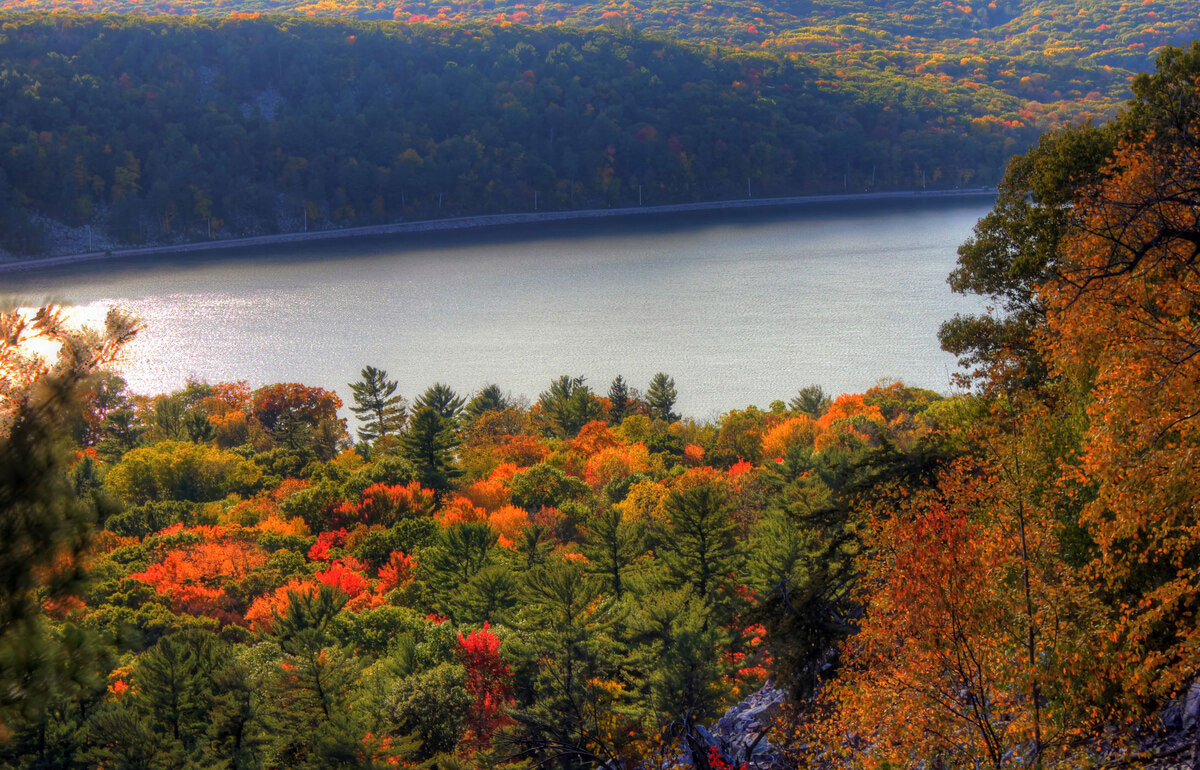
Photo: Yinan Chen
Wisconsin’s most popular state park provides the opportunity to spot rarely seen mammals like the mountain lion and bobcat. The park is also home to striped skunks, gray wolves, the American badger, and river otters.
You may or may not see any of the mentioned animals during your visit, as they are typically reclusive. Animals you are far more likely to spot are turkey vultures or white deer.
To increase your chances of rare sightings, use binoculars or lens cameras, as the areas where you’ll find these animals won’t always be physically accessible or close enough. Other tricks include getting out at dawn or dusk and searching for tracks in the mud or snow.
The park abounds with recreational activities for nature enthusiasts. There are several habitats ideal for camping, canoeing, hiking, swimming, mountain climbing, and biking.
-
Buffalo Overlook
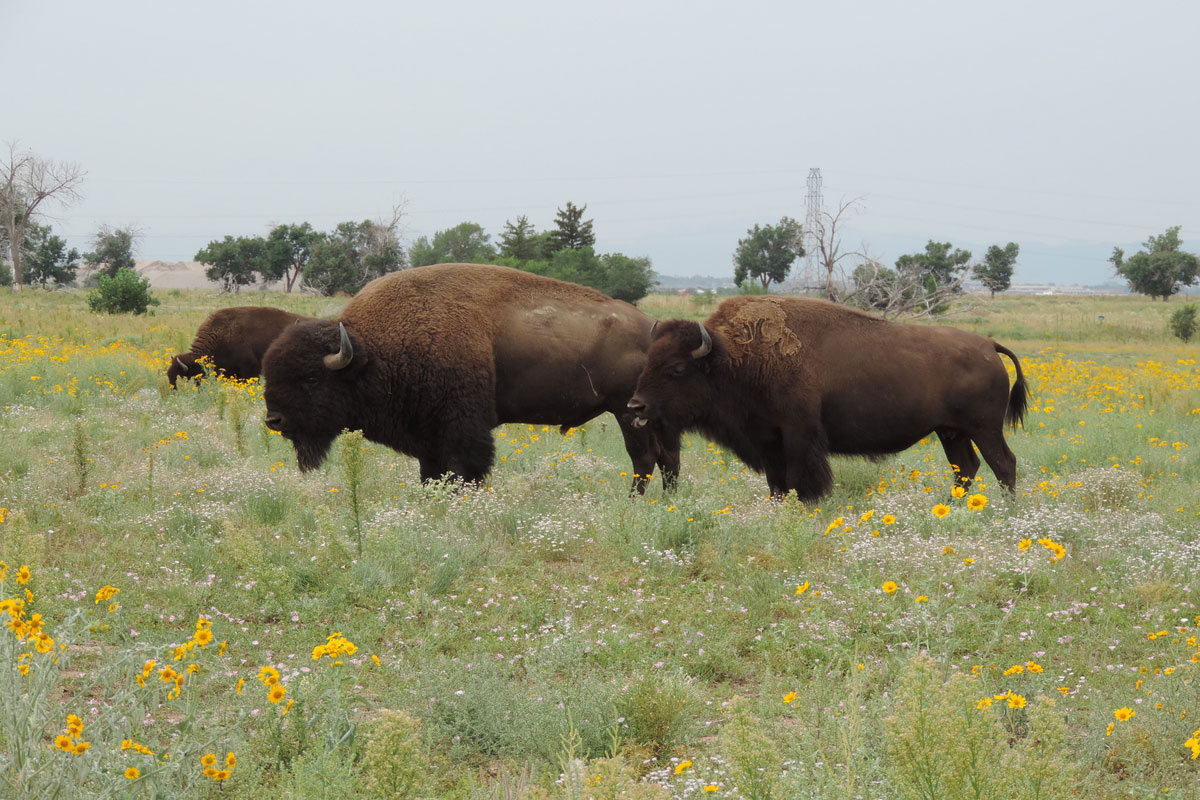
Photo: USFWS Mountain-Prairie
This lowkey attraction is a great opportunity to see bison for free. There’s not much more to the site than a large herd of bison grazing in a field, but it’s a worthy endeavor for those willing to learn more about the majestic animals.
The site is open all year, so tourists are always welcome.
-
Apostle Islands National Lakeshore
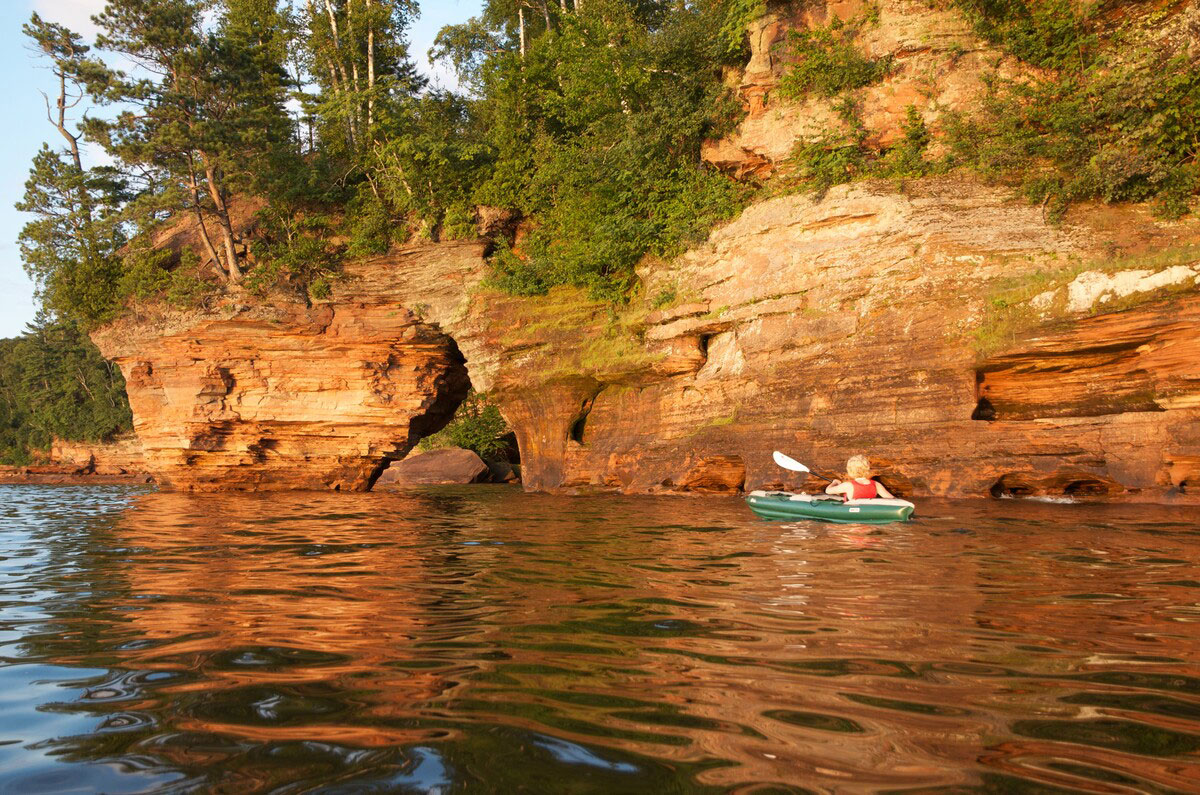
Photo: Tim Wilson
The Apostle Islands National Lakeshore is adorned by picturesque islands, forests, and windswept beaches. A nature enthusiast’s paradise, the area is also promising for wildlife viewers.
There are 260 species of birds and over 40 species of mammals located in various habitats. You’ll find moose, beavers, black bears, bald eagles, and Canada geese. Reptiles include the northern ringneck snake and the western painted turtle.
The area is rich in aquatic life, with 48 recorded fish species. While there are commercial fishing camps, recreational fishing is also allowed.
The Apostle Islands offer exciting opportunities for recreation and tourism. Think shipwrecks and beautiful underwater formations, all of which are accessible via scuba diving.
19 of the 21 islands in the area are accessible to campers. Hikers have much to look forward to, with more than 50 miles of hiking trails leading to beaches, lighthouses, and abandoned quarries.
-
Willow River State Park
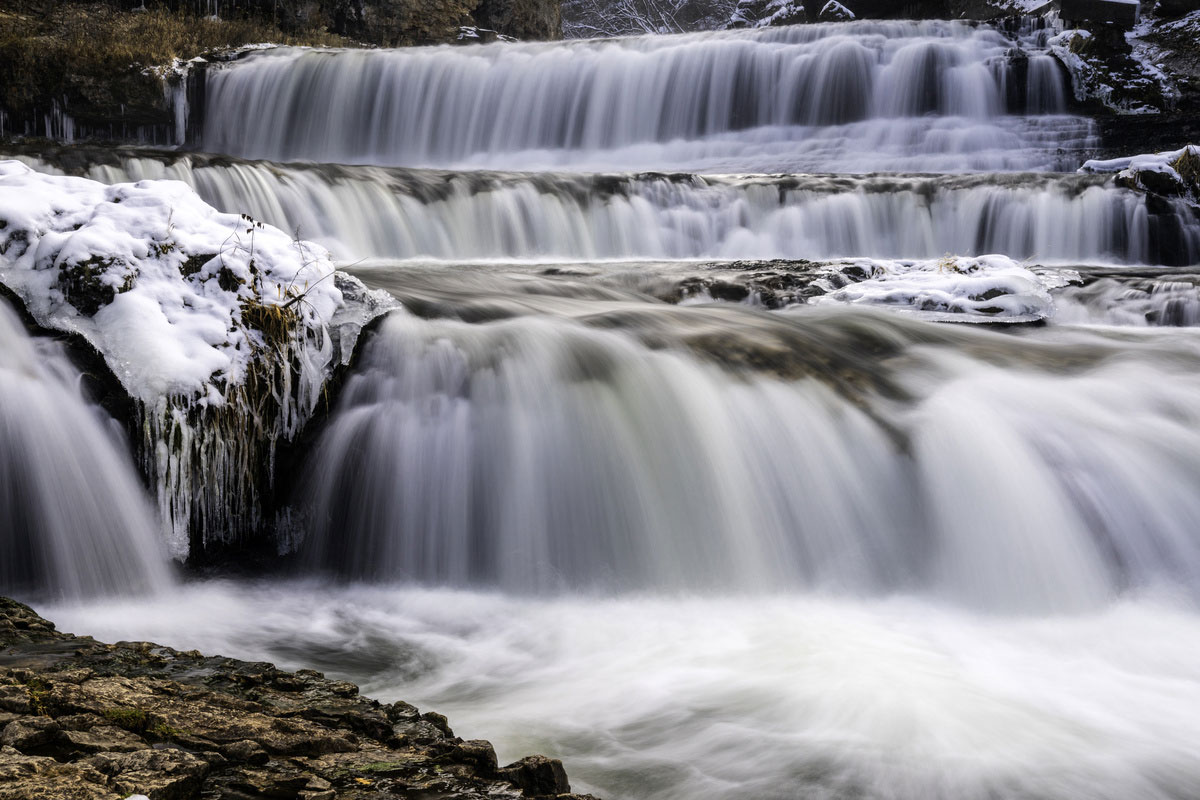
Photo: Lorie Shaul
The Willow River State Park has the Willow Falls Trail, one of the most popular hiking destinations in Wisconsin. Dotted with oak savanna and white pine plantations, the park is home to a thriving population of deer, pheasants, and waterfowl.
The waterfall is the ultimate destination for nature lovers, and it is breathtaking to look at. It’s even more spectacular during the winter when bodies of ice and snow shade the river and lend it a mysterious quality. The trail is easy, largely free of bugs, and serene until you get to the waterfall.
The park also offers recreational opportunities thanks to its rich habitats. Visitors can choose to go birding, canoeing, fishing, hunting, and trapping.
Experience More of Wisconsin’s Fascinating Wilderness
Needless to say, the Badger state is no slouch in the outdoor department. Apart from the wildlife parks, there are over 40 designated trails (including two national scenic trails) and at least 15,000 lakes to indulge scenic activities.
I’ll recommend going to see the Devils Lake or Lake Michigan if you prefer an aquatic experience. They are two of the most popular lakes in Wisconsin for a reason. Lake Michigan is open to recreational fishing, and if you are lucky, you might catch some interesting (and massive) common fish species like walleye and giant carp.

